- Home
- Patricia McLinn
The Runaway Bride Page 4
The Runaway Bride Read online
Page 4
He pressed his lips together. Feeling sorry for her didn’t do anybody any good. Neither did feeling any qualms.
If she was who she said she was, then there’d be no real harm done.
If she wasn’t who she said she was—far more likely—he’d be in a better position to protect the Diamond V. That was all the reason he needed.
It would have helped if Becky had noticed something more than that this woman’s clothes were “hot.” Hell, it would have helped even more if she and Gran—Gran for heaven’s sake—hadn’t fallen for this malarkey about amnesia.
He wasn’t going to feel sorry for her. Wasn’t going to try to understand her problems. He was going to protect his ranch from outsiders.
Still, it didn’t mean it had to be done right now. She was sleeping.
But it wasn’t because he felt sorry for her that he eased back across the threshold, through the bathroom and out the connecting door to his room. Having her wake up and find him at it wouldn’t gain anything.
He’d search her room later.
“This is what you wear to take care of a woman who’s had a hip replacement?”
Judi knew the question was aimed at her but she didn’t budge from the counter where she’d found a sandwich with a note that she guessed Becky had written: This is for Helga. No one else eat it on pain of death. P.S. Dinner’s at 7:30.
Now—five minutes after Judi came downstairs—the note remained on the counter. The sandwich had been reduced to two crusts, a shred of lettuce and crumbs, and a tall glass had only a white film left in it. It had been a long time since breakfast.
She’d been considering looking into the enticing, smoky smells coming from outdoors when the screen door’s squawk warned her of someone’s arrival. Since she was still chewing the last bite she didn’t turn around. When Thomas’s voice came from behind her, she looked over her shoulder with her best queen-talking-to-a-commoner gaze. Maybe she’d play Helga as a long-lost descendent of Scandinavian royalty.
“I wasn’t aware there was a uniform requirement for the job.”
“Or maybe you just don’t remember it.”
The quirk of humor that accompanied those words was more than the lifting of his mouth into not-quite-a-grin. More than the deepening of faint lines at the corners of his eyes. It was more like a breeze had pushed away clouds and let out the sun.
Uh-oh.
That was as close as her mind came to spelling out that thought, but that was enough. Better watch your step, Judi-Helga.
She started to turn to face him with regal dignity. But as she finished the pivot, her left leg slid between the two layers of material of her sarong, exposing halfway up her thigh. It would have been up to her hip if she hadn’t grabbed the material in a fist, ruining the regal effect.
Thomas’s face reverted to the more familiar frown. “We expected a health aide to wear something practical.”
She’d put on the sarong because it covered a lot and it wasn’t something she would wear when she started working. The tie-at-the-midriff blouse went with it.
“We? Gran said nothing about a dress code, and a health aide can like pretty things, you know.”
“Like ’em maybe, but not afford ’em. Your clothes must’ve cost a fortune.”
“How would you know that?”
“Because I’m out here in the wilds of Wyoming?”
“No, because you’re just like—” She’d almost said my brother. “Like every other man I’ve met. With no idea and no interest in clothes.”
She let her gaze skim down his body, as if to judge—and find lacking—his outfit.
Big mistake. His jeans and faded blue plaid work shirt not only suited him, they fit him. To a T. Come to think of it, that was how he was built, with broad shoulders and narrow hips.
To cover her reaction, she hurriedly added, “Besides, I’m not taking care of anyone yet. Gran said to start in the morning. She said to rest and eat, so I’m here for dinner.” She looked around, seeing no signs of food preparation.
“Outside. I came in to get the catsup.”
“Smells great.”
“Enjoy it tonight, because starting tomorrow, you’re cooking. The job’s not just to help Gran. You agreed to cook dinner six nights a week.”
She heard the echo of a gauntlet being thrown down. “Was that really in the agreement, or are you taking advantage of my unfortunate injury?”
“The tragedy of amnesia is that you might never know.”
How could she both want to belt him and laugh?
Without succumbing to either temptation, she returned his look. “Six dinners a week, it is.”
“And breakfasts.”
“But no lunches except for the patient.”
“Of course,” he said solemnly. “That was the agreement.”
She nodded, though she suspected him of yanking her chain. As she headed out the door he held open, she decided that was fair, since what she’d told him so far had not even a nodding acquaintance with the truth.
Outside, Gran was in straight-backed chair set on a square of plywood that connected to the porch steps by way of a wide path of plywood. Her chair sat at the head of a picnic table ungraced by a cloth.
Gandy was tending something on a grill. The table held three oversized bags of chips, four loaves of white bread, a tub of butter, a huge jar of pickles, miscellaneous relishes, a stack of paper plates, another of paper napkins, a jumble of cutlery and three six-packs of soft drinks.
“First ones’re about ready,” announced Gandy. “Grab a seat.”
In addition to the three Vances and Gandy, two more men sat down. By the way the tall, thin one moved, Judi guessed he was fifty, though his weathered face could have been pushing seventy. His companion was probably a few years older than Becky. He had the physical assurance of a man, while his smile was almost bashful.
“Helga, this is Keith.” Gran said, indicating the older man. “And Steve. They eat with us most days, though only Gandy lives on the place. Boys this is Helga.”
While she said “How do you dos” with her most winning smile, they each gave her a nod. Gran continued. “That accident shook her up, and she can’t remember real well, but we figure she’s the aide Thomas hired from South Dakota.”
Keith nodded acceptance, but Steve said, “Really?”
“Yeah. She has amnesia,” Becky said.
Thomas grunted. Any further comment was forestalled by Gandy arriving at the table with a platter piled with hamburger patties. Gran gave a simple blessing then the platter was passed around. Judi was astonished at how fast the stacks diminished. Each of the men took three pieces of meat and twice as many slices of bread. Butter was slathered on the bread, a burger was set between them, then consumed in what seemed to be three or four bites, before the process was repeated. As soon as space appeared on their plates it was covered with chips and a half-dozen pickle slices. And Becky was not far behind.
There was no conversation at all. No one wolfed down the food, but they ate with a concentrated attention that spoke of hunger.
Gandy produced another platter, and it too was emptied, along with the bread wrappers and chip bags.
Gandy finished first, closing the dampers on the grill and saying something about checking on “the wreck” before heading off. He was followed shortly by Keith. Becky said she was going to ride out to check on a foal she’d doctored. Thomas got up and told Gran to give him a holler in the barn when she was ready to go in. Steve ate another burger and polished off the chips, taking a pickle for the road as he headed in the direction Thomas had gone.
The whole thing couldn’t have taken more than twenty-five minutes, and Judi felt as if she’d been caught in a culinary whirlwind.
Gran chuckled. “It’s something isn’t it? It’s the old way on ranches—used to be the hands ate as fast as possible because there was always something more to do. I’d had them broke of that, but with this—” she gave an impatient wave toward her hip and leg
, made bulky by bandaging “—the meals aren’t much, and they’ve fallen back to the old ways. You’ll have to eat a sight faster if you want to get enough to keep body and soul together, Helga. If you’re still hungry—”
“Oh, no, no, I’m fine. Becky left me a sandwich, so I wasn’t hungry.”
“Sandwich and milk.” Gran nodded. “You’ve got milk around your mouth.”
“What? Oh—” She dabbed at her mouth. Great. She’d been trying to win over the ranch hands while wearing a milk mustache.
Thomas must have noticed, but hadn’t warned her, Judi thought as she washed the platter and the few stainless utensils. Everything else she’d thrown out after helping Gran inside to a straight-backed chair in the kitchen’s far corner, watching a tiny TV crowded onto a corner of a paper-strewn desk.
Well, she’d spent a few years in corporate America, and she’d learned a few things about such warfare. Come to think of it, her boss in the job she’d quit two weeks before her wedding had a few things in common with Thomas Vance. Including making no effort to hide a low opinion of Judi Monroe—or Helga Helgerson as the case might be.
The door screeched open, and before Judi recovered from the assault on her ears, Thomas’s voice boomed, “Becky!”
“Becky’s not back yet, though she probably heard you holler wherever she is.”
Thomas stood in the middle of the kitchen, hands on his hips, frowning, though not apparently at her. It was more disapproval of the world in general.
“Becky didn’t help Gran in? Who did?”
“I did.”
“You did.” He repeated the words, but his mind clearly wasn’t on that. “Damn. I sent Steve home.”
“I wish I could…” Gran’s words trailed off, though her frustration echoed in the silence. “Maybe Helga can help you.”
At his grandmother’s first words Thomas had turned toward where she sat. Now he turned back to Judi. Judi felt like she was caught in the beam of a spotlight. If she’d been one of those old computer cards, she’d have come out bent, folded, spindled and mutilated from the going-over she received from those green eyes.
“Maybe.”
As a vote of confidence it wasn’t much.
“Riding? I might not—”
“I’m not putting you on any of my horses.” Why did she think he was concerned about the horses and not her? “I need somebody to drive, and at least we know you know how to drive. Unless you’ve forgotten that, too.”
She widened her eyes at him, putting her clasped hands to her chest, and said in a whispery voice, “Oh, dear, I don’t know. I suppose the only way to know is to put it to the test. This is all so terrifying.”
He snorted and turned away, heading out the protesting door and toward the barn. At least Gran chuckled.
“If you don’t want to help, just ignore him,” Gran said. “He’ll get the idea eventually.”
“I don’t mind helping, it’s just…”
“My grandson’s manners could use polishing, but he’s got a good heart.”
Judi resisted the temptation to suggest starting that polishing with a power sander, gave Gran what she hoped was a smile and headed outside. She hurried after Thomas, trying to catch up with his ground-gobbling loose-limbed stride.
“So, Becky’s sixteen?” She sounded a little breathless as they neared a truck that might have started as silver before streaks of dirt and pockets of rust took over.
“Just turned fifteen. Why?”
“You were going to have her drive.”
“Round here kids drive ranch trucks as soon as their feet reach the pedals. It’s no big deal. Here’s the truck. What you’re going to do is—”
“Wait a minute, I need keys.”
“They’re in the ignition. We don’t get many truck-jackings.”
“I wonder why,” she murmured, considering the dent in the door and the crack in the windshield.
He ignored that. “Have you ever driven a stick shift?”
“I don’t—”
“Remember,” he finished for her. He grunted. “Start ’er up, and we’ll find out.” Judi turned over the ignition and closed her eyes as if trying to dredge up a memory. She’d really closed them to hide that she didn’t have to dredge very deep. She’d been taught to drive standard transmission as well as automatic from the start, and her car had a stick shift because it helped to get around in Chicago’s snow.
The truck vibrated like one of those massage chairs overdosed on caffeine, but the engine didn’t stall.
“When I raise my right hand, drive straight across the open area and stop. Slow and steady. Okay?”
“I think I can handle it. What are you going to be doing?”
“Riding Dickens.”
“Near the truck? Desensitizing him because of the accident?”
He gave her a look she couldn’t read with the slanting sun and the brim of his hat conspiring to shadow his face. “Guess that would be the fancy term. Drive across there then turn down the road. This side of that turn in the fence—” he pointed “—there’s a wide spot to turn around. Come back and do the same route in reverse. Then repeat the whole thing. But don’t start any leg until I signal. Got it?”
“Is this where I’m supposed to salute?”
From the angle of his head she suspected he was staring at her from those hat shadows. She stared back at him through the open window.
“You got a smart mouth on you, you know that, Helga?”
Without giving her a chance to respond, he turned on one boot heel and strode toward the pen—a corral?—where Dickens waited already saddled.
“At least he admits I’m smart,” she muttered to herself.
It was more than she’d ever gotten out of her previous boss, Christine Welmer. In her family circle—those directly related to her as well as those who knew her so well they were like family—the opinion was that while she had intelligence, the jury was out on the degree of her good sense. Of the group, Judi’s sister-in-law Bette had the most faith in her, yet, Bette too, sometimes slipped and treated Judi like a precocious child.
Thomas took his time, moving slowly and deliberately around the horse. Riding lessons had been part of the repertoire where she grew up, along with tennis, skiing and golf. So Judi recognized the control it took for Thomas to swing into the saddle lightly when Dickens minced sideways. From this distance it appeared as if Thomas held absolutely still, yet from the horse’s reactions, especially the ears flickering around like radar, there was a lot of communicating going on.
Thomas moved the horse into position, then raised his right hand. Judi eased out the clutch, and nearly stalled the thing. She gunned the engine to keep it from dying. Dickens sidestepped and snorted. Thomas shot her a glare.
She hadn’t actually seen the glare because of the hat shadows, but she’d felt it.
“Sorry!” she called out cheerfully as the truck moved across the horse’s path.
She went down the road, found the spot he’d mentioned, turned the truck in two awkward stages and waited. When he raised his right hand she retraced the path, then turned around by dint of hard yanking on the recalcitrant steering wheel. Another hand signal from Thomas and she was off on her putt-putt circuit for a second time. And a third. A fourth. A fifth. Each pass a little closer to horse and rider.
On the sixth near-intersection of truck and horse she yawned hugely, and could have sworn she caught a look of empathy in Dickens’s eyes. The man never looked at her and never wavered. Patient, steady, inexorable.
Seventh pass, eighth and ninth.
They were close enough now that as she returned to the starting spot for the tenth circuit, even with twilight beginning to lose its grip, she realized Thomas was not holding still at all. When Dickens tried to shy away from the truck, Thomas exerted pressure with his outside leg. As soon as the horse stopped pulling away, the pressure stopped. Time after time, telling Dickens what he was doing wrong, and removing the pressure the instant he st
arted doing right.
Each motion of the powerful horse was met by an equal motion by the rider, the bunching and shifting of Thomas’s muscles illustrated through the faded denim. She’d been right—the jeans did fit him to a T. Snug enough to show all his power. There was a certain pattern in the fading denim that called attention to the fact that the area under the zipper was not nearly as flat as the area above his belt. No, not anywhere close to flat. In fact—
She jerked into sudden awareness of something beyond Thomas’s…uh, looks. That something happened to be his voice.
“Helga! Hey! Wake up!” He’d ridden Dickens within a couple feet of the idling truck. The horse’s eyes and ears scanned for trouble, but he didn’t back away.
“What?”
“I said, turn off the truck. Now you know why I have to holler.” He emphasized the word, reminding her of her complaint when he’d come in the kitchen looking for his sister. “You and Becky don’t listen. Or maybe you forgot your name. Again.”
Every darn stair creaked as Judi tiptoed down them. It was after midnight and the house was totally quiet—except for the protest of wood on wood as she stepped on the far right side of the last stair. Left, right, middle—they all creaked.
But she needed a glass of water beside her bed. She rarely drank it, but there’d been a glass with water on her nightstand since she’d been old enough to have her own bed and, at the moment, she needed that tiny piece of continuity. Finding no glass in the bathroom, she’d headed downstairs.
A faint light came from the kitchen. Maybe the Vances left a light on, like her mother did over the stove to guide any nocturnal wanderers.
She peered around the doorframe and saw Thomas at the desk with the goosenecked lamp aimed at papers in front of him. He had his shirt pulled out of his jeans, showing the T-shirt underneath. He had one elbow on the desk, with his cheek supported by his palm and the top of his head propped against the wall. He was asleep.
Not quite snoring, but breathing deeply and steadily.
Judi took one step into the room. Then another. She reached the cabinets on the opposite side of the room from him.

_preview.jpg) Almost a Bride (Wyoming Wildflowers Book 1)
Almost a Bride (Wyoming Wildflowers Book 1)_preview.jpg) Prelude to a Wedding (The Wedding Series Book 1)
Prelude to a Wedding (The Wedding Series Book 1)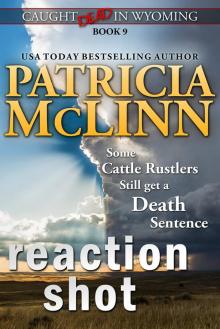 Reaction Shot (Caught Dead in Wyoming, Book 9)
Reaction Shot (Caught Dead in Wyoming, Book 9) Warm Front
Warm Front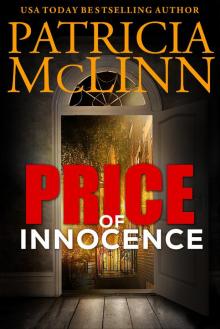 Price of Innocence
Price of Innocence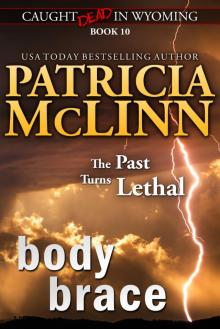 Body Brace (Caught Dead in Wyoming, Book 10)
Body Brace (Caught Dead in Wyoming, Book 10) Death on Covert Circle
Death on Covert Circle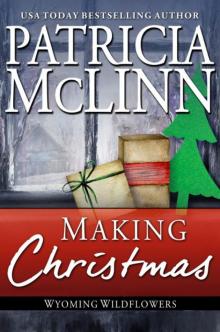 Making Christmas
Making Christmas Death on Torrid Ave.
Death on Torrid Ave. Death on the Diversion
Death on the Diversion The Rancher Meets His Match
The Rancher Meets His Match Widow Woman
Widow Woman The Runaway Bride
The Runaway Bride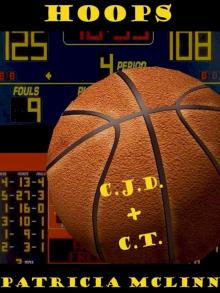 Hoops
Hoops A Stranger in the Family (Book 1, Bardville, Wyoming Trilogy)
A Stranger in the Family (Book 1, Bardville, Wyoming Trilogy)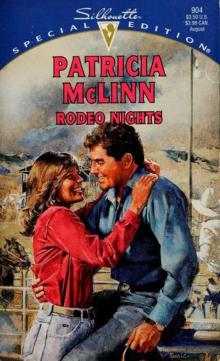 Rodeo Nights
Rodeo Nights Wedding Series Boxed Set (3 Books in 1) (The Wedding Series)
Wedding Series Boxed Set (3 Books in 1) (The Wedding Series)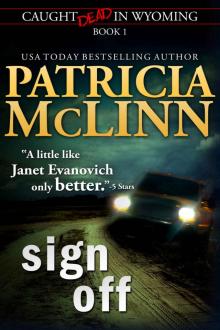 Sign Off (Caught Dead in Wyoming, Book 1)
Sign Off (Caught Dead in Wyoming, Book 1) Prelude to a Wedding
Prelude to a Wedding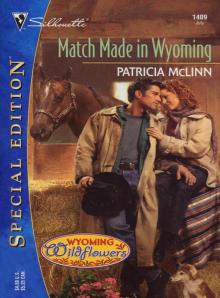 MATCH MADE IN WYOMING
MATCH MADE IN WYOMING Left Hanging
Left Hanging What Are Friends For?
What Are Friends For?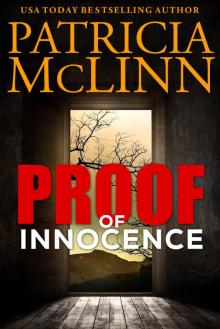 Proof of Innocence
Proof of Innocence Hidden in a Heartbeat (A Place Called Home, Book 3)
Hidden in a Heartbeat (A Place Called Home, Book 3) Baby Blues and Wedding Bells
Baby Blues and Wedding Bells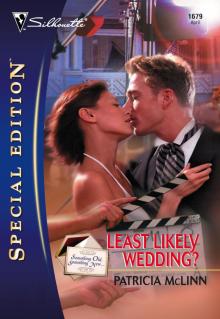 Least Likely Wedding?
Least Likely Wedding? Heart Stealers
Heart Stealers Grady's Wedding
Grady's Wedding Right Brother
Right Brother Wedding of the Century
Wedding of the Century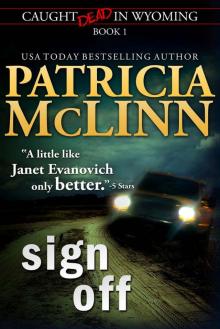 Sign Off
Sign Off The Surprise Princess
The Surprise Princess Wyoming Wildflowers: The Beginning
Wyoming Wildflowers: The Beginning